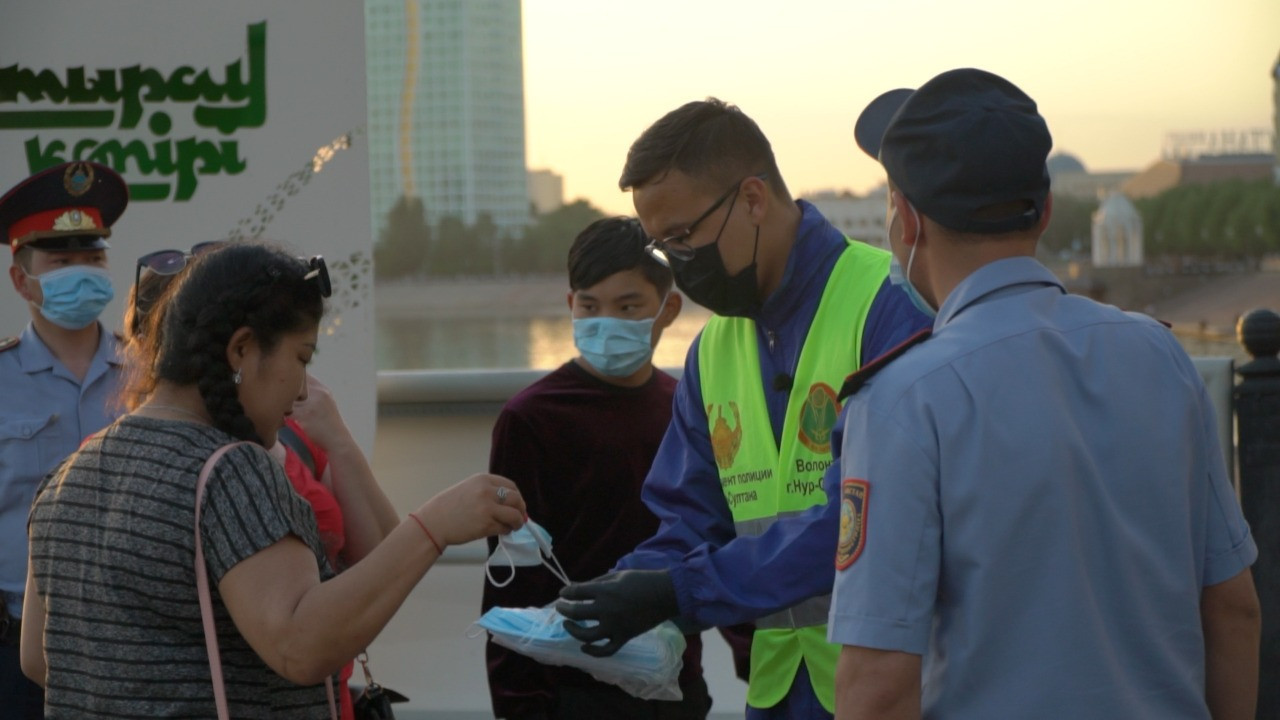NUR-SULTAN – While Kazakh officials have been actively urging their fellow citizens to observe social distancing and other essential precautions amid the pandemic, people’s continued negligence of these strict rules has raised concerns, said Caroline Clarinval, head of the World Health Organization (WHO) Country Office in an interview to the United Nations News Service.

After easing of the restrictions in May, people flocked to the streets, but ignoring essential rules such as wearing masks. Photo credit: astana.gov.kz
As of July 17, Kazakhstan, home to more than 18 million people, reported 66,895 cases of the coronavirus infection and 375 deaths. The number of coronavirus cases, however, started to soar after the nation eased its lockdown restrictions in May and had to enforce a second lockdown starting July 5.
“At the same time, we are deeply concerned by the behavior of the population. After easing the restrictions, not all people have been following the necessary precautionary measures, including maintaining social distance from, especially one’s family. But this is a practical observation. There is no available research on this topic yet. Still, we are witnessing the transmission of the virus between relatives, which has led to the general increase in cases. The load on the healthcare system increased significantly and it needs support,” said Clarinval.

Caroline Clarinval. Photo credit inform.kz
She noted that the Kazakh Healthcare Ministry is doing its best, but the system is now facing a shortage of medical workers.
“One of the problems is the shortage of medical workers and laboratory workers because dealing with COVID-19, many contract the infection, which results in the shortage of human resources,” said Clarinval.
The situation could have been different “if people kept a physical distance from others and followed simple WHO recommendations.”
“We should not also forget about the social and economic consequences of the quarantine, which should be taken into account when taking epidemiological measures,” she said.
“Epidemiological control was never getting enough attention in many countries around the world. It did not receive big financing. Experience and necessary skills are important. Were they trained on how to protect themselves? It is very difficult for them, sometimes it is very difficult to follow all these precautions,” she added.
The WHO and the ministry are training the medical workers, but Clarinval said enormous efforts are required to train all health workers and provide them with protective equipment given that “Kazakhstan is a large country with an extensive network of healthcare facilities.” She noted the recent WHO delivery of protective equipment worth US$2.7 million.
“I would like to note that amid the surge of coronavirus infection cases, healthcare workers are doing tremendous work every day treating patients. But not all (people) remember that and not all value their work. Such an attitude affects their psychological state and motivation,” said Clarinval.
She also commented on the recent string of reports in Chinese news media outlets that claimed a strain of “unknown pneumonia” was in Kazakhstan, which the government categorically denied.
Clarinval referred to Mike Ryan, head of WHO Emergencies Programmes, who said July 10 that it could be “undiagnosed cases of COVID-19.”
“Some patients may have been late to seek help when they had signs of pneumonia, but we still cannot determine the presence of the virus. It is also necessary to determine the capacity of local laboratories. We know that sometimes there are so-called false-negative results. All this will be subject to further evaluation. The WHO will also send a team of laboratory research experts to the country. There may be a variety of reasons, but the main thing is not to rush to conclusions because we still do not have the necessary information,” she said.
Kazakh President Kassym-Jomart Tokayev has repeatedly urged citizens to wear masks and observe social distancing rules.
“Without it, there will be no positive outcome in the fight against the pandemic,” wrote Tokayev on his Twitter on Monday.

